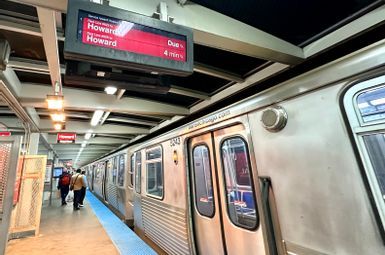
Research led by the University of Michigan arrived at a surprisingly unsurprising result while assessing the sustainability gap between public transit and services like Uber and Lyft.

As technology progresses, so too do our options to get around. From public transit to autonomous vehicles, U-M experts are on the cutting edge in both catalyzing new transportation modes and in analyzing their impact and relation to broader sustainability. Key initiatives like Mcity and the Center for Sustainable Systems study the nexus between technological advancements, climate change, and related socioeconomic disparities and opportunities.

Research led by the University of Michigan arrived at a surprisingly unsurprising result while assessing the sustainability gap between public transit and services like Uber and Lyft.

To combat climate change, the world needs to pivot away from fossil fuels. But building battery electric vehicles and infrastructure for renewable energy will require enormous amounts of minerals and resources.
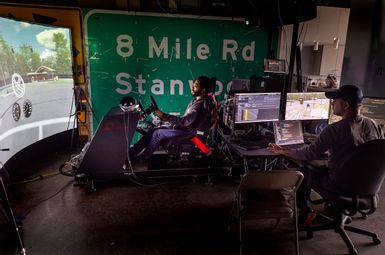
As Mcity begins welcoming researchers in autonomous and connected vehicle technologies from around the U.S. to be remote users of its physical and virtual testing environment, its leadership is calling for federal standards for safety testing, arguing that the lack of clear goalposts is hampering development.
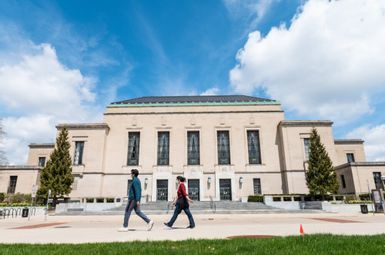
This year’s survey will focus on critical topics including carbon neutrality, transportation, waste prevention, climate change, and food sustainability. New questions on climate anxiety will explore respondents' feelings about climate issues and their experiences with direct impacts.
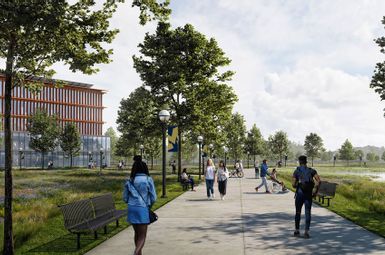
At the core of Campus Plan 2050 is a commitment to sustainability. The initiative proposes innovative infrastructure solutions, including geo-exchange systems designed for efficient heating and cooling through ground-source heat pumps, as well as extensive building retrofits that enhance energy efficiency and sustainability, and efficiency upgrades to the transit system.

Along M-22 in northwestern Michigan, people with mobility challenges can access breathtaking views of Lake Michigan from a 300-foot-high platform, explore rare birds and plants in a restored marsh or lose themselves in coastal dunes and forests once off-limits.
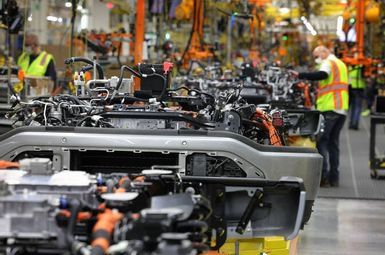
U.S. auto plants producing battery electric vehicles have required a larger workforce than traditional internal combustion engine plants—a finding that runs counter to early predictions about how EVs would impact the industry.
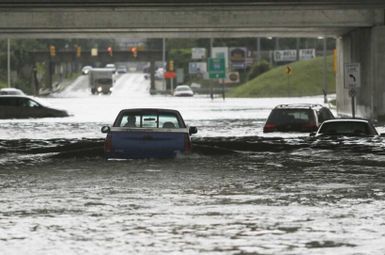
Massive 2014 flooding event in southeast Michigan showed why systems thinking beats local thinking in flood protection.
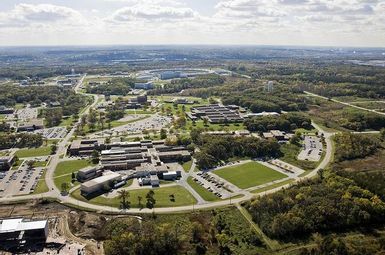
Maximizing the benefits of clean energy requires new ways to store it, and U-M engineers will partner in a new research hub created by the U.S Department of Energy (DOE), designed to develop and further battery innovations.

Artisanal and small-scale mining plays a critical role in supplying the world with minerals vital for decarbonization, but this kind of mining typically lacks regulation and can be socially and environmentally harmful.
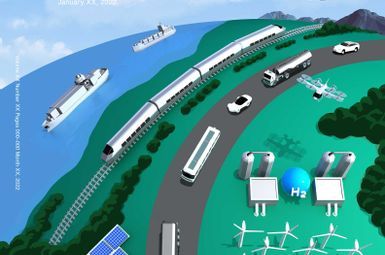
Green hydrogen is emerging as an important potential solution for decarbonizing transportation, but new energy efficiency findings indicate that it should be used strategically in heavy-duty road, rail, aviation and marine transportation, a U-M study shows.
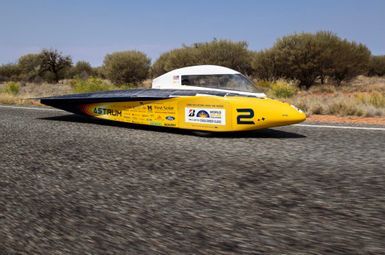
Sporting a brand new roll cage, the U-M solar car team’s latest vehicle will speed down parts of the Oregon Trail and seven other national historic trails during this year’s American Solar Challenge, July 20-27. Starting in Nashville, Tennessee, the team will drive more than 1500 miles to the finish in Casper, Wyoming.

Traffic pollution emerges as a lead exacerbator for ailments that come with aging.

Air pollution from traffic emerges as a key risk factor for older adults losing their ability to care for themselves without some or total assistance. Traffic-related air pollution releases fine particulate matter and gasses like nitrogen dioxide into the air that can harm the lungs, heart, brain, and other parts of the body.

Improving electric motor efficiency, reducing costs and ultimately making them without heavy rare-earth elements are the goals of a new $2.6 million project led by U-M.

Three new U-M sustainability catalyst grants will support novel research projects to address vexing environmental challenges. “Catching the Waves” focuses on deploying wave energy converters to power remote coastal communities, starting with Beaver Island in Lake Michigan. “Mussel Roads” uses biomimicry to enhance asphalt durability by developing materials inspired by mussel-binding proteins. “Plast-ick,” leverages artificial intelligence and satellite data to predict pollutants like PFAS in water bodies.

Copper cannot be mined quickly enough to keep up with current U.S. policy guidelines to transition the country’s electricity and vehicle infrastructure to renewable energy, according to a U-M study.

The new projects include “Plast-ick,” which leverages AI and satellite data to predict pollutants like PFAS in water bodies; “Catching the Waves,” which focuses on deploying wave energy converters to power remote coastal communities; and "Mussel Roads," which uses biomimicry to enhance asphalt durability by developing materials inspired by mussel-binding proteins.
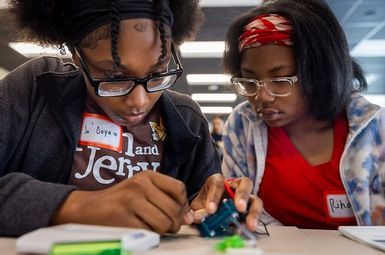
Eighth graders from Henderson Academy in Detroit were the first to build and race model hydrogen cars at the Michigan Engineering Zone.
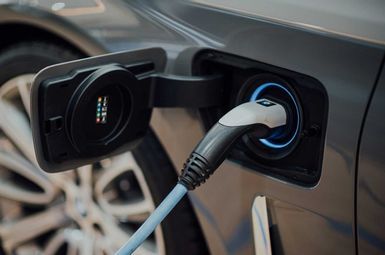
Local officials across Michigan increasingly view electric vehicle infrastructure planning as relevant for their governments, though many cite too few public charging stations and costs associated with adding them as barriers to expansion.
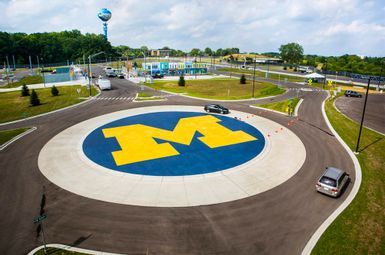
The Mcity AV Challenge will pit researchers in academia and industry against each other, measuring the performance of their decision-making modules in a world-leading, realistic simulated environment.

For long-haul routes below 300 miles, electrification can reduce air pollution and greenhouse gas damages by 13%, or $587 million annually, according to the study. For long-haul routes above 300 miles, electrification of just the urban segments facilitated by hub-based automation of highway driving can reduce damages by 35%, or $220 million annually.

U-M is marking late March and all of April with a series of events focused on sustainability and climate action, continuing a tradition that began with the first “Teach-In on the Environment” in 1970—which grew into what is now known as Earth Day.

"Train travel in America is much more limited than, for example, in Europe. You often can’t get where you want to go. But you can get to Lincoln from Ann Arbor, with just one change in Chicago. What’s the carbon savings? A flight to Lincoln would add about 800 kg of CO2 emissions to my annual budget. The train trip is more like 85 kg. Takes more time, for sure, but that’s a big part of why emissions from train travel are so much lower."

As the architect of the Solar Energy Research Institute, which won 42 awards and was named the most energy-efficient building in the world, Rich von Luhrte knows how something is built is just as important as what is produced and why. That knowledge and his passion for addressing climate change have led him to establish a scholarship supporting students studying urban design.
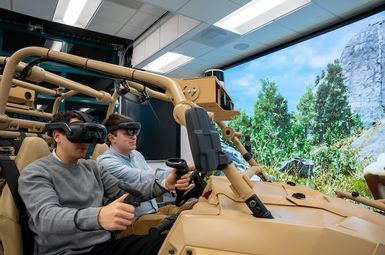
“We are driving the development of modern mobility systems with our advanced modeling and simulation methods, such as high-fidelity synthetic environments, virtual vehicle prototypes and virtual reality tools for human-autonomy teaming."

Four newly awarded sustainability “catalyst grants” at U-M are piloting innovative ways to bolster climate resilience and sustainability. Funded by the U-M Graham Sustainability Institute, these projects will explore renewable energy deployment in Nepal, climate justice in the Midwest, textile recycling innovation and equitable transportation planning.
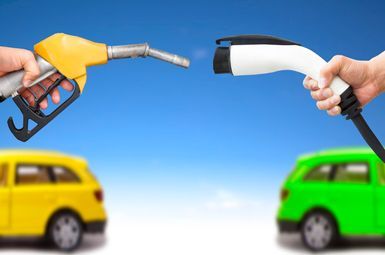
Is it actually cheaper to own an electric vehicle instead of a gas vehicle? It depends. U-M researchers say that where you live matters. For instance, a midsize SUV costs more to own in Detroit than in San Francisco—one of the most expensive cities in the country.
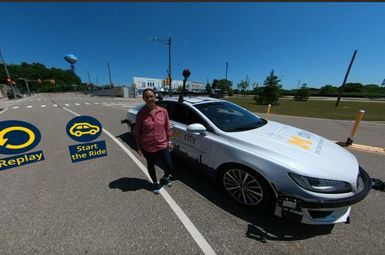
Autonomous and electric vehicles can be a positive force for people and the planet, but widespread gains require government incentives and investment to ensure access for users across the economic spectrum.
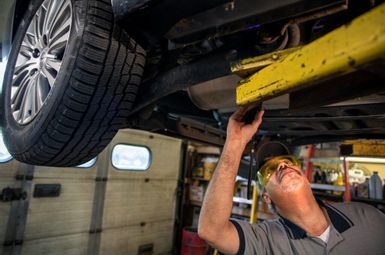
Electric vehicles (EVs) represent the largest auto industry shakeup since, perhaps, the introduction of the assembly line more than a century ago. Moving consumers from the internal combustion engines (ICE) that have powered their transportation since birth to something fundamentally different means major changes at all levels of the business.
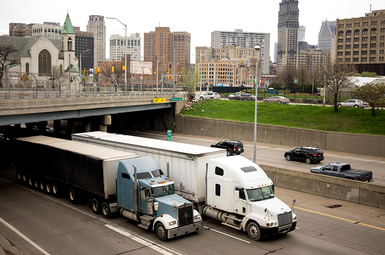
A U-M Public Health research team will support community leaders from the Southwest Detroit Community Benefits Coalition and the Southwest Detroit Environmental Vision, who are working to develop an app that quantifies truck traffic using data from phones and other electronic devices.
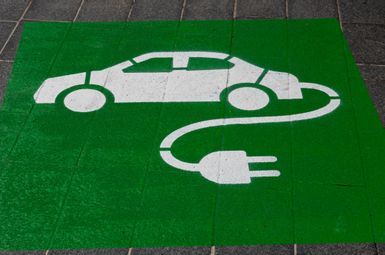
One of the goals outlined by the Biden administration’s National Climate Task Force in 2021 was to reduce U.S. greenhouse gas emissions to 50%-52% below 2005 levels by 2030. Now, a U-M study investigates one of the strategies to achieve this goal, which is to increase new vehicle sales to 50% electric by 2030. The study also reveals a path to meeting the targets.
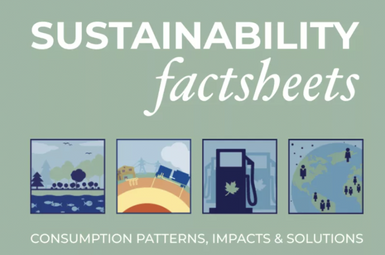
Each peer-reviewed factsheet presents data on patterns of use, life cycle impacts, and sustainable solutions. Updated annually by a current SEAS graduate student, the collection is a free resource to inform journalists, policymakers, business professionals, students, teachers and the public.
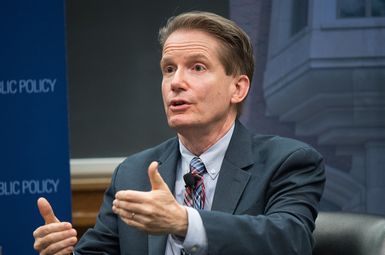
"The possibility of a sudden shift [of policy] would be pretty shocking for the industry to absorb. (...) I can’t imagine the industry is going to want to be jerked back and forth every four or eight years.”
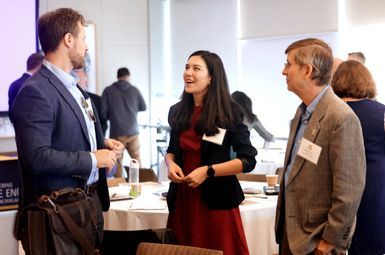
Electric and hybrid aircraft, hydrogen power, advanced airframes and more were on the table at U-M's first symposium on sustainable aviation.
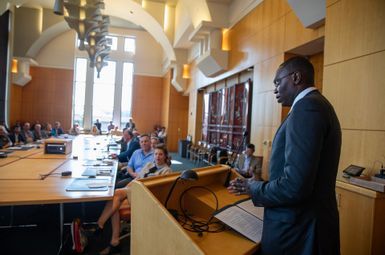
“The e-mobility revolution presents an opportunity for all of us to lead the world toward a more sustainable future. And, at Michigan, this means land, sea, space, and air mobility.”
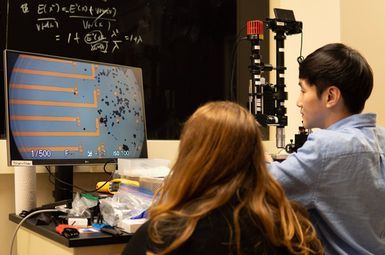
Rather than being solely detrimental, cracks in the positive electrode of lithium-ion batteries reduce battery charge time, research done at U-M shows. This runs counter to the view of many electric vehicle manufacturers, who try to minimize cracking because it decreases battery longevity.
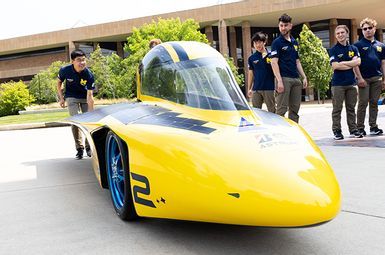
With a name inspired by the Latin phrase “ad astra,” which means “to the stars,” the U-M Solar Car Team unveiled its first three-wheeled bullet-style vehicle. “Astrum” is scheduled to race in this year’s Bridgestone World Solar Challenge, a biannual, 1,800-mile race from Darwin on Australia’s northern coast to Adelaide on the country’s southern coast.
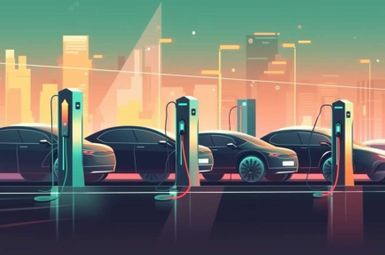
A new study estimates that the overall benefits to society of switching ride-hailing vehicles from gasoline to electric would be very modest—on average, a 3% gain per trip when other “costs on society” are factored in.
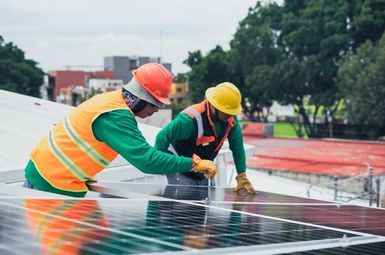
Engaging researchers from nine units across U-M and several other academic institutions, along with multisectoral partners, the projects will explore community solar, agrivoltaics, carbon-neutral building materials, aviation fuel waste reduction, and sustainable archeology.
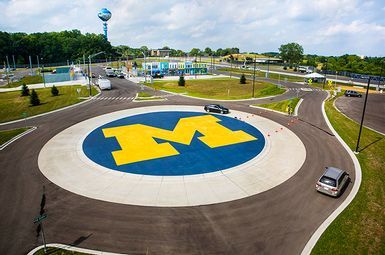
On the heels of the global chip shortage, U-M is part of a new public-private partnership that will establish a global semiconductor center of excellence in Michigan that focuses on the auto industry.
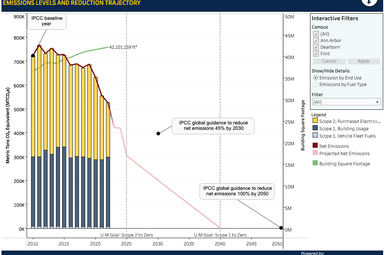
U-M has launched a report on the use of $300 million in “green bonds,” updated sustainability dashboards and building guidelines, and announced that it is the first university to join the First Movers Coalition, which aims to advance sustainable industrial technologies.
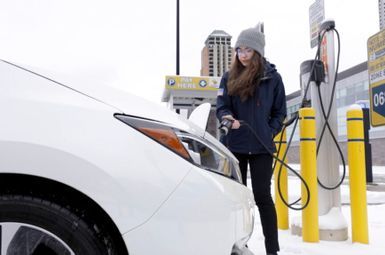
In an effort to cultivate a robust EV ecosystem in the place where the modern auto industry was born, the U-M Electric Vehicle Center is launching with these three focus areas: accelerating collaborative R&D, developing a highly skilled workforce, and establishing advanced campus infrastructure and facilities to support both research and education.

Replacing all of the oldest school buses in the nation could lead to 1.3 million fewer daily absences annually, according to a U-M study. The suspected cause of these preventable absences is exposure to high levels of diesel exhaust fumes, which can leak into school bus cabins or enter buses through open windows. Over time, exposure can exacerbate respiratory illnesses and other conditions and lead to missed school days.
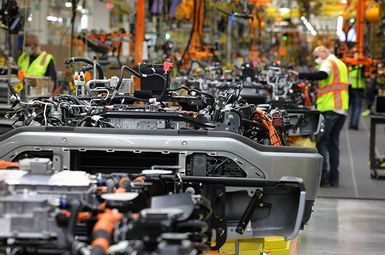
U-M is a partner in a major state-sponsored initiative to promote careers and attract talent to the state of Michigan’s burgeoning electric vehicle and transportation mobility sector.